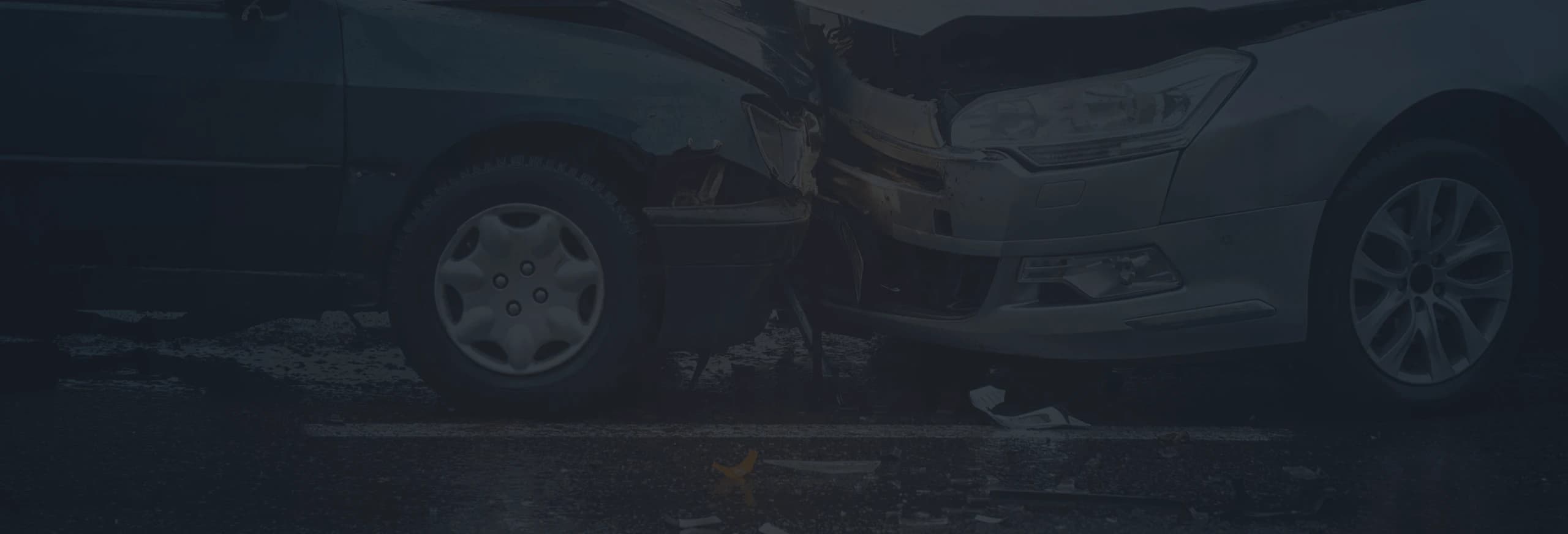
Product Liability Lawyer in Phoenix

When a product is purchased and used as intended, most consumers expect it to function safely. Yet some items, from medical devices to household appliances, carry hidden flaws or inadequate warnings that put people at risk. When these defects lead to serious harm, it can be unsettling to realize that a brand or manufacturer might have overlooked critical safety checks. If you or a loved one in Phoenix encountered injuries due to a defective product, understanding your legal options can help you cover medical costs, recoup wages, and find stability amid uncertainty.
Below, you will discover key details about product liability cases, potential types of product defects, and how a legal professional can support you in seeking fair compensation. These insights serve as a foundation only; for individual guidance tailored to your exact circumstances, consider speaking with a lawyer familiar with product liability matters in Phoenix.
Understanding Product Liability
Product liability law holds manufacturers, suppliers, distributors, and sometimes retailers responsible when their goods cause harm under normal use. Unlike many standard negligence claims, it’s not always necessary to prove the maker knew the product was dangerous. Instead, you often show that a defect existed or that important warnings were missing, causing injuries when the item was used as intended.
Key aspects of product liability typically involve:
- Defect or Unreasonably Dangerous Condition
- The product has a design flaw, manufacturing error, or labeling problem that makes it unsafe
- Even proper usage leads to unexpected harm
- Causation
- Demonstrating that the defect is the direct reason for your injuries
- Ruling out alternative sources that might explain the harm
- Damages
- Evidence of physical, financial, or emotional loss due to the unsafe item
- Maintaining receipts, medical records, or statements from relevant professionals
According to the U.S. Consumer Product Safety Commission (CPSC), product recalls and safety alerts are announced regularly. However, many hazardous products remain in homes or workplaces long after a recall is issued. If you suspect a harmful defect, a prompt legal consultation may clarify whether your condition qualifies for a product liability claim.
For a free legal consultation with a Personal Injury lawyer serving Phoenix, call (844) 343-9609
Types of Product Defects
There are generally three recognized defect categories in product liability law:
- Design Defects
- A flaw lies in the product’s blueprint, making every unit inherently unsafe
- Even if well-manufactured, the product’s structural or functional concept poses risks
- Example: A power tool lacking a basic safety guard, leading to frequent user injuries
- Manufacturing Defects
- Mistakes during the production process alter an item from its intended design
- This could be substandard materials, assembly errors, or contamination on the factory line
- Example: A batch of tires with weak spots that cause blowouts, though the design is typically secure
- Inadequate Warnings or Instructions
- A product is hazardous if it lacks cautionary labels, usage guidelines, or disclaimers
- Users who remain unaware of potential side effects or safe handling methods may sustain serious damage
- Example: Medication lacking clear dosage instructions, resulting in overdoses or complications
The U.S. Food and Drug Administration (FDA) and other regulatory bodies closely oversee certain categories, such as drugs and medical devices, requiring rigorous testing and labeling. However, some goods slip past or do not fully disclose risks. If you suspect your injuries arose from flawed design, poor assembly, or missing instructions, you could have grounds to seek compensation.
Personal Injury Lawyer Near Me (844) 343-9609
Potential Injuries From Defective Products
Manufacturers distribute a range of everyday items, from children’s toys to heavy industrial machinery. Any of these can become perilous if not designed or built with care. Common injuries include:
- Burns or Electrocutions
- Household appliances with faulty wiring that overheat, spark, or short-circuit
- Battery malfunctions in electronic devices leading to sudden fires
- Chemical Exposure
- Toxic or allergenic ingredients in cosmetics, cleaners, or medications
- Corrosive substances unmarked by hazard warnings
- Broken Bones or Lacerations
- Structural collapses of furniture, ladders, or exercise machines during normal use
- Sharp edges on improperly molded plastics or metals that slice through skin
- Organ Damage or Severe Side Effects
- Prescription drugs lacking adequate warnings, triggering harmful interactions
- Unsafe supplements or medical implants that fail, harming internal tissues
- Choking or Suffocation
- Small parts in children’s products loosening or breaking off
- Packaging hazards that can trap or deprive air
For many victims, the physical pain is compounded by mental distress—doubts about future health, frustration at the brand’s negligence, and the burden of unforeseen expenses. A legal claim can address the costs of surgeries or therapies and the psychological toll associated with the accident.
Click to contact our personal injury lawyers today
The Challenge of Proving Liability
Securing a fair product liability settlement or verdict often demands evidence that:
- You Used the Product as Intended
- Demonstrating that you adhered to normal usage instructions
- Underlines that your harm was not from misuse or ignoring instructions
- The Product Was Defective
- Pinpointing which category of defect (design, manufacturing, or labeling) applies
- Expert assessments of blueprints or production logs may support your argument
- Causation
- Linking your injuries specifically to this product, negating other possible sources
- Medical records or lab tests can verify that the product’s flaw precipitated damage
- Damages
- Illustrating medical costs, wage losses, or intangible struggles like depression or scarring
- Potential use of specialist evaluations or receipts to confirm financial burdens
Investigations frequently involve collecting sample products, analyzing recall announcements, or consulting engineers who can replicate performance tests. A legal professional coordinates these efforts, simplifying communications with insurance companies or corporate defense teams.
Complete a Free Case Evaluation form now
Potential Compensation for Defective Product Injuries
When a corporation markets an unsafe item, it may owe victims coverage for losses arising from that negligence. Possible recoveries can include:
- Medical Bills
- Emergency care, surgeries, prescription medicines, or ongoing therapies
- Long-term treatments if conditions persist or worsen
- Lost Wages
- Reimbursement for missed workdays during recovery
- Compensation for diminished earning power if permanent impairments hamper your career
- Rehabilitation and Recovery Costs
- Physical therapy, mental health counseling, or specialty clinics
- Home modifications (ramps or railings) if mobility is forever changed
- Property Damage
- Replacing or repairing belongings harmed by product-induced fires, explosions, or leaks
- Receipts, estimates, or photos prove material losses
- Pain and Suffering
- The physical, emotional, and psychological effects of the experience
- Potential scarring, anxiety, or loss of self-confidence after a severe incident
In some cases, if evidence shows especially egregious corporate disregard for safety, victims may pursue additional damages intended to discourage similar misconduct. Thoroughly documenting each impact from the defective product helps shape a convincing claim.
Collaborating With a Product Liability Lawyer in Phoenix
Managing insurance claims or corporate legal strategies alone can be draining, especially while healing. An attorney familiar with product liability suits can deliver essential support:
- Investigating Your Case
- Reviewing the product’s manufacturing or design records, promotional materials, or prior complaints
- Identifying if the item was subject to official recalls or ongoing safety inquiries
- Consulting Experts
- Engineers, medical professionals, or specialized analysts who can confirm how the product malfunctioned
- Toxicologists might confirm harmful chemical residues in certain goods
- Negotiating With Defendants
- Presenting evidence of the defect and your related injuries to defense attorneys or insurers
- Countering attempts to shift blame to user error or disclaimers
- Coordinating Mass Tort or MDL Participation
- If numerous plaintiffs share the same injury cause, your lawyer may advise joining a larger litigation process
- Collective efforts can pool resources for more thorough investigations
- Filing Suits If Needed
- In the event of unyielding corporate resistance, pursuing a lawsuit might be your best path
- Structuring arguments around the product’s flaw and your personal toll, from medical to mental well-being
Attorneys also ensure compliance with Arizona’s filing deadlines for product liability claims. Missing such timelines could forfeit your ability to pursue compensation.
Frequently Asked Questions
Do I need to keep the defective product or its packaging as evidence?
It’s often beneficial. Preserving the item helps experts analyze the defect’s nature. Store it safely so it is not further damaged. If it’s hazardous to keep, document its condition thoroughly using photos or videos before disposal, consulting a lawyer about the best approach.
How do I prove I used the product properly?
Usage instructions, manuals, or your standard approach can illustrate normal operation. Keeping receipts or references to how you typically handle the product is helpful. If the item came with disclaimers or recommended usage guidelines that you followed, an attorney can emphasize this point.
What if the product has been recalled?
A recall can bolster your case by suggesting known dangers. However, a recall alone does not guarantee liability or prove your injuries automatically. Additional proof of harm and direct causation is still required. An attorney verifies whether the recall notice aligns with your injury specifics.
Dangerous or poorly designed products not only let down consumers but can actively endanger them. If a flawed item in Phoenix harmed you or a family member, you may have grounds for a product liability claim. Collaborating with a lawyer can provide a structured investigation into how the defect arose, which parties share blame, and how to seek compensation for medical, emotional, and financial costs. By taking steps toward accountability, you stand up for your rights while promoting safer standards for all in the marketplace.
For a free consultation, call (844) 343-9609
Get an agent on the line in seconds
Responsive
Legal Assistance
Our personal injury attorneys advocate for the funds necessary to cover bills, secure medical treatment, recoup lost wages, and provide compensation for your pain and suffering.
Are you facing unfair treatment from the insurance company?
Do you know the value of your case?
Is the insurance company asserting that the accident is your responsibility?

We'll get back to you ASAP.
Get Your Free Consultation
You Pay Nothing Unless We Recover Compensation For You
